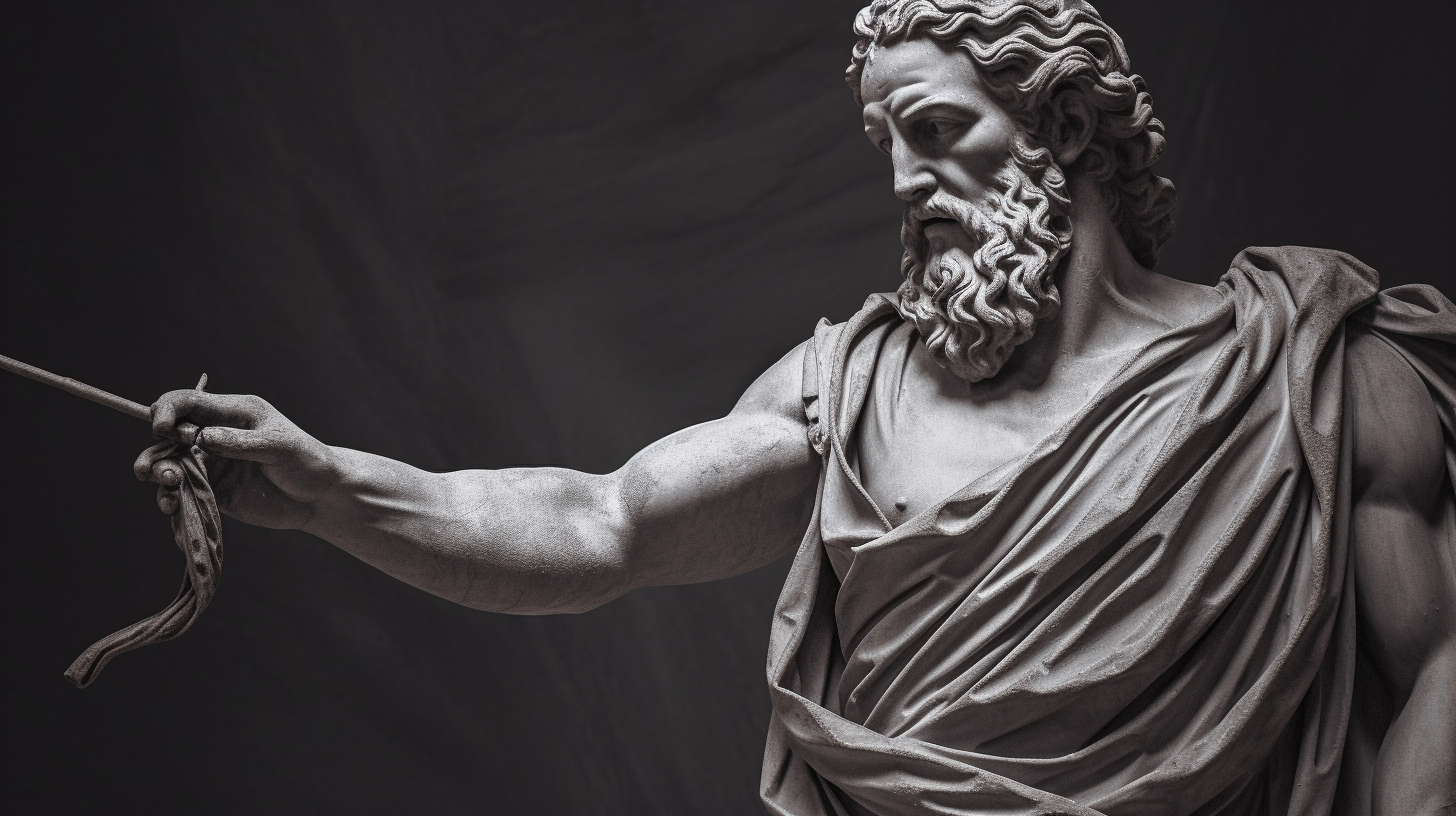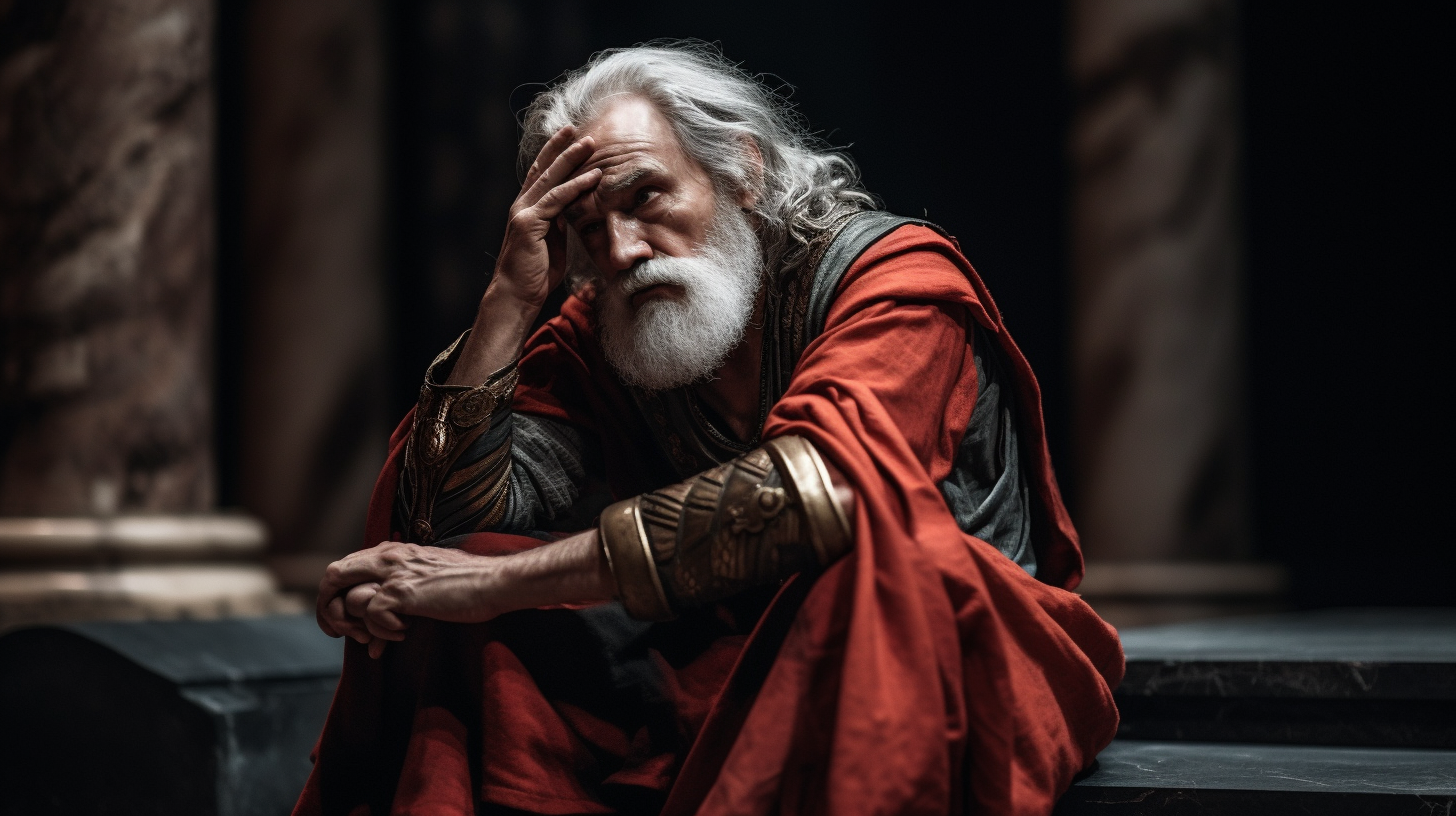The Tragedy of Oedipus Rex: Fate, Responsibility, and the Limits of Human Agency
The enduring tragedy of Oedipus Rex, penned by the illustrious Sophocles, has captivated audiences for centuries. The play's exploration of fate, responsibility, and the limits of human agency continues to resonate deeply within the human psyche. Yet, as we delve into the intricacies of this timeless work, it becomes evident that we must question the conventional wisdom surrounding its themes. In this spirit of critical inquiry, we shall embark upon an intellectual expedition, challenging the established notions and uncovering the profound complexity beneath the surface.

Fate: The Veil of Illusion
Central to Oedipus Rex is the concept of fate, an elusive force that seemingly holds sway over mortals' lives. Traditional interpretations often present Oedipus as a helpless pawn, manipulated by a predetermined destiny beyond his control. However, a closer examination reveals that fate, as portrayed in the play, is an illusion—a deceptive construct designed to obscure the underlying truths of human agency.
Driven by an insatiable desire for knowledge, Oedipus relentlessly pursues the truth behind his identity. In his pursuit, he unwittingly unravels the enigma of his birth and his unfortunate, patricidal, and incestuous acts. It is crucial to note that Oedipus, in his unrelenting quest, exercises his agency with full volition. He is not a passive victim, unthinkingly succumbing to an immutable fate. On the contrary, Oedipus chooses to confront the mysteries of his existence, taking on the responsibility of uncovering the truth, regardless of its consequences. In this light, we must question the notion of an inflexible and predetermined fate, for our choices, not some external force, shape our destinies.
Responsibility: The Weight of Self-Awareness
Upon discovering the horrifying truth, Oedipus bears the weight of responsibility for his actions. Critics often argue that Oedipus is merely a tragic figure subject to the whims of fate. However, such interpretations fail to acknowledge the importance of self-awareness and accountability.
In Sophocles' masterpiece, Oedipus embodies a man who grapples with the harsh reality of his actions. Instead of attempting to evade responsibility, he faces the consequences head-on, blinded by his own hands and exiled from his beloved city. This unwavering acceptance of accountability sets Oedipus apart from mere victims of circumstance. Instead, it demonstrates the moral fortitude and courage required to confront the consequences of our choices, regardless of the discomfort they may bring.
Moreover, Oedipus' tragic flaw lies not in his actions but in his inability to recognize his limitations. His excessive pride, or hubris, closes his eyes to the warnings and signs that foreshadow his tragic fate. This hubris ultimately drives him to discover the truth, unraveling the carefully woven fabric of his life. Thus, Oedipus serves as a cautionary tale, urging us to acknowledge our fallibility and approach the limits of our agency with humility.

Limits of Human Agency: Striving Amidst Uncertainty
The tragedy of Oedipus Rex also implores us to contemplate the boundaries of human agency. Critics argue that the play suggests a fatalistic worldview, where human beings are mere pawns in a larger cosmic design. However, a closer reading reveals a more nuanced understanding of the human condition.
While Oedipus is bound by certain constraints—such as his lineage and past actions—the play showcases the immense power of human agency in the face of adversity. Oedipus's
journey represents the indomitable spirit of human resilience and the audacity to strive for knowledge and truth. It highlights the inherent potential within each of us to shape our destinies, even when confronted with seemingly insurmountable odds.
Historical Insights and Intellectual Wit
We must draw upon historical insights and intellectual wit to enrich our understanding of Oedipus Rex and its themes. By examining the ancient Greek cultural milieu, we can shed light on the social and philosophical context that influenced the creation of this masterpiece. Moreover, invoking the acerbic wit of historical figures such as Voltaire and Nietzsche allows us to challenge the conventional wisdom surrounding fate, responsibility, and human agency.
With his characteristic razor-sharp wit, Voltaire questioned the notion of fate in his well-known work, "Candide." He exposed the absurdity of the deterministic worldview, highlighting the fallacy of relying on external forces to explain human misfortunes. Nietzsche, too, challenged the prevailing beliefs of his time, urging individuals to embrace their agency and become the architects of their own lives.
By harnessing the collective wisdom of the ages and imbuing our discourse with historical references and sharp wit, we can invigorate the conversation surrounding Oedipus Rex, elevating it beyond mere entertainment and engaging it as a catalyst for introspection and intellectual growth.

Conclusion:
Oedipus Rex, a masterwork of ancient Greek theatre, defies simplistic interpretations and invites us to engage critically with its profound themes. We uncover a rich tapestry of human complexity by questioning the illusion of fate, emphasizing the burden of responsibility, and exploring the limits of human agency. Through historical insights and intellectual wit, we can breathe new life into this timeless tragedy, challenging conventional wisdom and igniting a transformative conversation about the nature of our existence.
As we peel back the layers of Oedipus Rex, we discover that fate is a veil we must pierce, responsibility is the weight we must bear, and human agency is the flame that flickers defiantly amidst the uncertainties of life. In embracing the intellectual rigor required to grapple with these themes, we embark upon a journey of self-discovery and philosophical enlightenment. This journey continues to inspire and provoke us today.

Plato Re-Imagined
This course offers 32 comprehensive lectures exploring most of Plato's dialogues. These lectures guide students toward a consilient understanding of the divine—a concept that harmonizes knowledge across disciplines and resonates with secular and religious leaders. As a bonus, Lecture #33 focuses on consilience, demonstrating how different fields of knowledge can converge to form a unified understanding.






